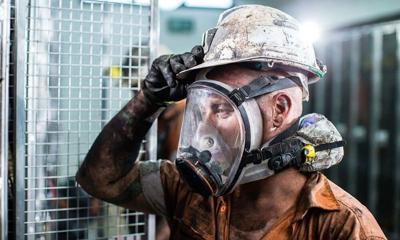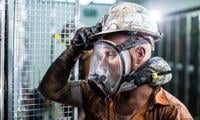
CHARLESTON — The West Virginia Supreme Court threw out several lawsuits by miners who claimed faulty respirators were responsible for their black lung disease, ruling the two-year statute of limitations was triggered when they first learned they were sick not when they met with their lawyers.
The decision could put a damper on a growing area of litigation in which plaintiff lawyers recruit miners who already are collecting benefits to sue the manufacturers of safety equipment, claiming they only learned later that facemasks were to blame for their disease. 3M said in its most recent annual report that it faces more than 3,000 respirator lawsuits and has set aside half a billion dollars to settle or defend the cases.
The latest ruling came in the case of seven miners who were diagnosed with lung impairment more than two years before suing 3M. Most of the miners said they only learned their respirators could be to blame after meeting with lawyers.
A trial court dismissed their cases as barred by the statute of limitations, and the Intermediate Court of Appeals upheld the ruling. The state Supreme Court agreed, rejecting arguments there is no “magic moment” when a plaintiff discovers he might have a claim and only a jury can decide.
“Application of the discovery rule — while fact-intensive — does not necessarily preclude summary judgment or usurp the role of the jury,” the court concluded in a November 7 decision.
The trial court used three tests to determine when the statute of limitations began to run: When the plaintiffs won disability compensation, when they were diagnosed with any form of lung impairment or when they applied for federal black lung benefits. The Supreme Court said these tests are valid, but “must be viewed in an overall context rather than blindly applied as a cutoff date.”
The plaintiff doesn’t have to know the product was defective, the court said, only that it caused their injury.
The plaintiffs argued cases involving latent injuries like black lung disease should require more specific knowledge than traumatic injury cases, like a car crash, where they just know “something was wrong.” The Supreme Court said that was a “difference in semantics, not substance.”
“When an injury becomes sufficiently pronounced to place a plaintiff on notice of the fact of an injury means the same thing as when a plaintiff knows there is something wrong -- both contemplate that a plaintiff has `discovered’ their injury, or, by objective standards should have discovered it, and triggers a duty to investigate the injury and its cause,” the court said.
Plaintiff Ronald Hardy worked as a coal miner from 1968 to 2001 and sued in August 2021. He testified he knew respirators were necessary to protect him against coal dust but said he only wore one about 40 percent of the time. He applied for black lung benefits in 2018 and began receiving checks in 2019, although he wasn’t officially judged eligible for benefits until 2022.
That created a “conundrum” for Hardy, the court said: His lawyers argued he only “discovered” his injury was caused by faulty respirators in 2022 but he had sued the manufacturers the year before. The court also rejected Hardy’s argument he thought his black lung was caused by the 60 percent of the time he wasn’t wearing a respirator, until lawyers informed him otherwise.
“That Mr. Hardy did not wear his respirators one hundred percent of the time does not obviate the need for investigation of a potential breach,” the court said.
“Mr. Hardy’s circumstances are not novel,” the court added, citing a 2022 decision dismissing a similar respirator case. The federal Fourth Circuit Court of Appeals also has made a similar ruling.
Plaintiff lawyers have long targeted respirators and other safety equipment for workplace injuries including asbestosis and cancer. 3M paid $6 billion to settle one of the largest such cases, claiming its Combat Arms earplugs had faulty instructions that left hundreds of thousands of soldiers with hearing damage.
3M has fought back against respirator lawsuits and claims it won 19 of 20 trials through the end of last year. In June, 3M sued attorneys Glenn Hammond, Mike Martin and Johnny Givens for allegedly conspiring to swamp it with questionable respirator lawsuits.
The three filed more than 850 claims against 3M over an 18-month period. Cited is an errant text message from 2023 Martin accidentally sent to one of 3M's outside lawyers complaining Hammond is "hurting our clients with real claims because so many are frivolous."
The State of West Virginia also has a long-running suit against 3M to recover healthcare expenses from allegedly defective face masks.





